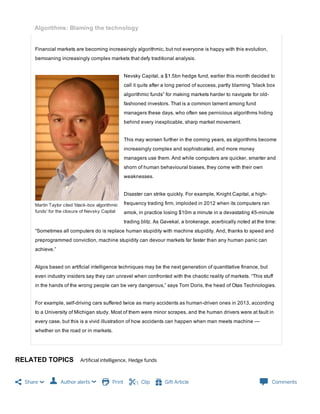1) Investment groups are racing to develop artificial intelligence systems that can think, learn, and trade like human investors in order to gain an edge over traditional investment strategies.
2) Some of the world's biggest money managers believe that advances in AI, machine learning, and predictive analytics will allow computers to outperform even the best human fund managers.
3) However, others remain skeptical that AI can truly replace human creativity, judgment, and decision-making, arguing that computers may supplement but not replace investors in analyzing markets and managing money.
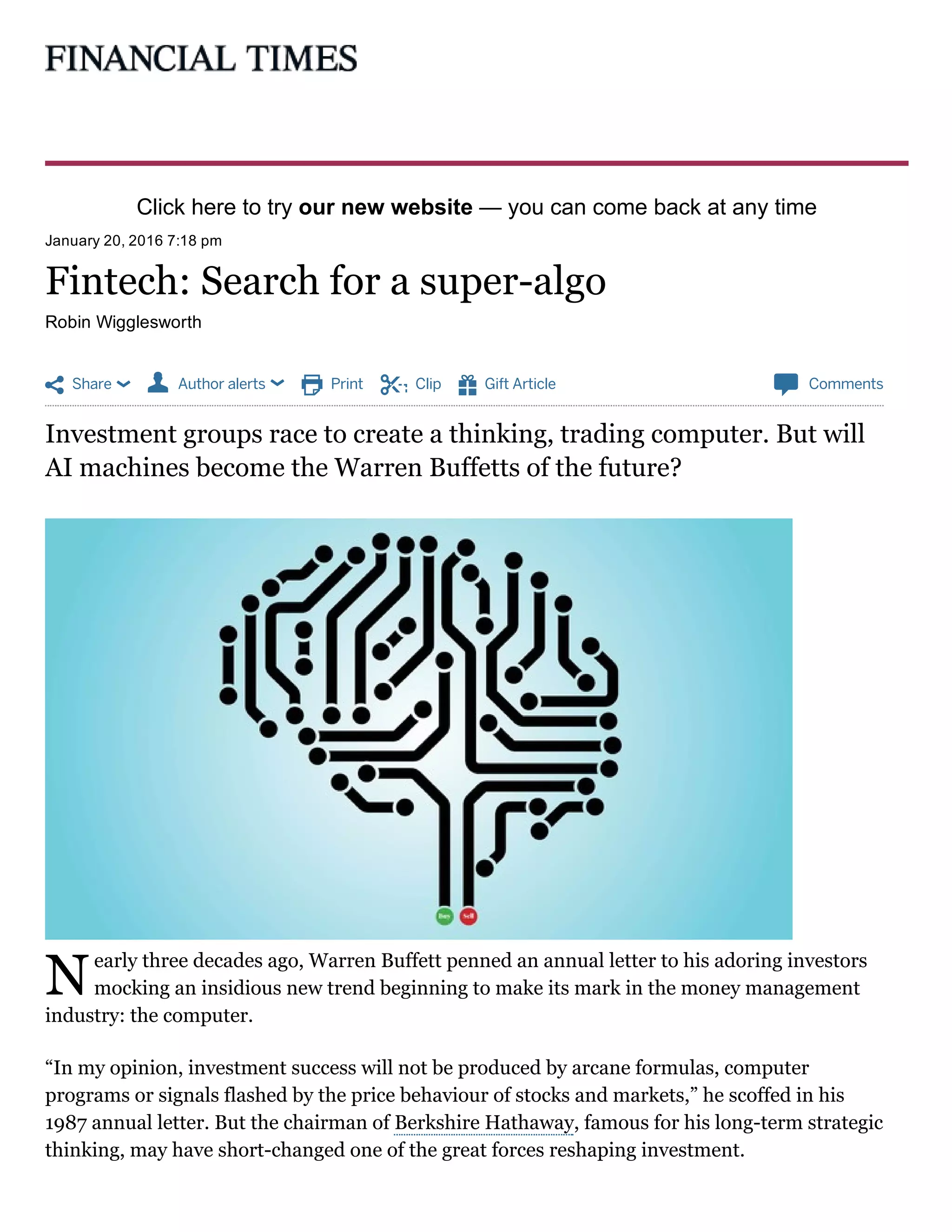
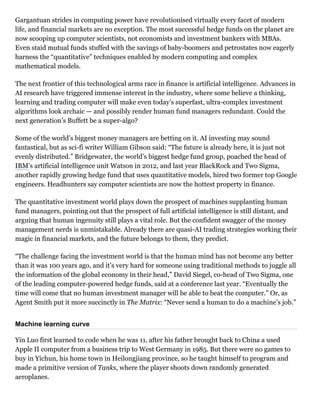
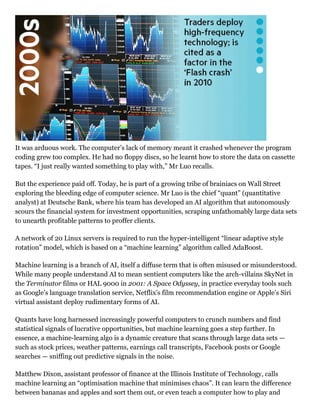
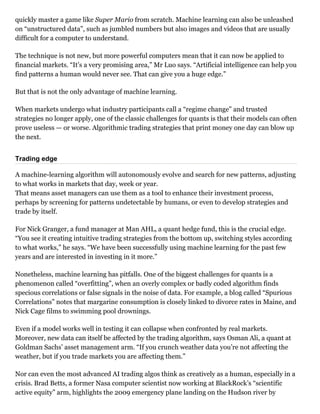
![Chesley Sullenberger as an example of when man trumps machine.
Indeed, some quants remain sceptical that machine learning — or AI more broadly — is a holy
grail for investment. Many see it merely as a new, advanced gizmo to supplement their existing
toolkit, while others argue it is largely a case of clever marketing rather than something
genuinely revolutionary.
“People are always desperate to find new ways to make money in financial markets, but they
don’t always work. Words are cheap and buzzwords are worth nothing,” says David Harding,
the head of Winton Capital, a quant hedge fund. He points out that the human brain is
uniquely adept at pattern recognition, “whether it is a face, a triangle or love. Investment
management is perfectly amenable to being addressed by computers designed to spot patterns,
but I’m not going to rush to use the latest hot algo to do so.”
Future synthesis?
So will human fund managers go the way of the dodo? Perhaps not quite, but the future looks
more challenging.
Two Sigma’s David Siegel says managing money has become harder as markets and economies
have become more complex. “Fifty years ago a human fund manager could possibly know all
that was needed to know to invest well. That isn’t likely any more,” he argues.
Rather than a danger, he sees this as a clear boon. “One day [the global economy] could
become too complicated to control and there is no guarantee it will run smoothly. But
algorithms could help us understand it better. People talk about how robots will destroy the
world, but I think robots will save it.”
The direction of travel is clear. Investing is about information management, rational analysis
and speed. That plays to a machine’s strengths. But human asset managers will adapt rather
than disappear. Most probably, the future of investment management will involve a synthesis
of human and artificial intelligence that harnesses the power of both.
For example, while a supercomputer can now beat chess grandmasters, both can lose to a
human player with the help of a standard laptop and chess simulation program. Similar
combinations are the future of money management, argues Robert Frey, a former managing
director at Renaissance Technologies, one of the most successful hedge funds of all time. Mr
Frey now runs his own fundoffunds and teaches quantitative finance at Stony Brook
University.
“We should let the human brain do what it is good at, and let computers do what they are good
at,” he says. “Marrying the two is a powerful thing.”](https://image.slidesharecdn.com/fintechsearchforasuper-algo-ft-160514034719/85/Fintech-search-for-a-super-algo-FT-5-320.jpg)
